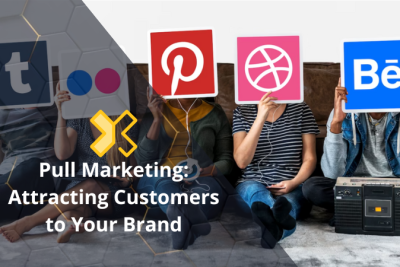
Online Marketing: Digital Strategies for Modern Brands

In the dynamic market of Canada, online marketing has become an essential component for successful brand marketing. With the rise of digital technologies and the increasing reliance on the internet, brands must adopt digital strategies to remain relevant in today's world.
Understanding Online Marketing
Online marketing, also referred to as internet marketing or web marketing, is a digital strategy used by modern brands to promote their products or services online. It utilizes various channels, including search engines, social media platforms, emails, and websites, to reach and engage audiences.
One of the main benefits of online marketing is its ability to provide measurable results. With the use of analytics tools, brands can track and analyze their online marketing efforts, enabling them to optimize their strategies for better performance.
Key Concepts of Online Marketing
Online marketing relies on several key concepts to drive its success. These include:
- Targeting: Identifying and reaching specific audiences based on demographics, interests, and behaviors.
- Engagement: Creating content and experiences that encourage audiences to interact with brands.
- Conversion: Converting engaged audiences into leads, customers, and advocates.
Through these concepts, online marketing enables brands to build relationships with their audiences, generate leads, and increase sales.
Overall, online marketing is an essential aspect of modern brand strategies, providing a cost-effective and measurable way to reach and engage audiences in Canada's dynamic market.
Importance of Digital Marketing for Brands
Digital marketing has become an essential tool for modern brands looking to succeed in the Canadian market. In today's fast-paced and ever-evolving business landscape, companies require a dynamic marketing strategy that can keep up with the latest trends and technologies. Digital marketing provides the flexibility and agility necessary for brands to meet these demands and thrive.
The advantages of digital marketing for modern brands are numerous. One of the most significant benefits is the ability to reach a broader audience. Through digital channels such as social media, search engines, and email marketing, companies can engage with a diverse range of customers and prospects, regardless of their geographic location. This reach enables brands to expand their customer base and increase their revenue.
Another advantage of digital marketing is the ability to target specific audiences with precision. By using tools like demographic data, browsing history, and search queries, brands can tailor their marketing messages to resonate with the needs and interests of individual consumers. This targeted approach increases the likelihood of conversions and can lead to higher customer satisfaction.
Digital marketing also offers brands the opportunity to engage with customers in real-time. Through social media platforms like Twitter and Facebook, companies can respond to customer inquiries, address concerns, and provide quick and personalized customer support. This approach helps build trust and credibility with customers, strengthening their loyalty to the brand.
Overall, digital marketing plays an essential role in the success of modern brands. By utilizing various digital strategies, companies can expand their reach, target specific audiences, and build meaningful customer relationships. As the Canadian market continues to evolve, brands that integrate digital marketing into their overall marketing strategy will be better positioned for growth and success.
Search Engine Optimization (SEO)
Search engine optimization (SEO) is the practice of optimizing websites and content to improve organic search rankings and drive targeted traffic. It involves a range of techniques designed to help search engines understand the content of a website and determine how relevant it is to specific search queries.
SEO is a critical component of any successful online marketing strategy. By optimizing a website's content and structure for search engines, brands can increase their visibility in search results and attract a higher volume of targeted traffic.
Key Elements of SEO
There are several key elements involved in optimizing a website for search engines:
| Element | Description |
|---|---|
| Keyword research | Identifying the keywords and phrases that potential customers are searching for. |
| On-page optimization | Optimizing website content, including titles, meta descriptions, and headings, to make it more relevant to specific keywords. |
| Link building | Building high-quality backlinks from other websites to improve website authority and search engine rankings. |
| Mobile optimization | Ensuring that websites are optimized for mobile devices, with fast load times and a responsive design. |
Benefits of SEO
By implementing an effective SEO strategy, brands can experience a range of benefits, including:
- Increased visibility in search results
- Higher search engine rankings
- More targeted traffic to websites
- Improved user experience and website usability
- Builds brand credibility and trust
Overall, SEO is an essential component of any digital marketing strategy. By optimizing websites and content for search engines, brands can attract more targeted traffic and increase their online visibility, resulting in more leads, conversions, and sales.
Social media marketing is an important component of any online marketing strategy. With the proliferation of social media platforms, brands can connect with their target audiences in ways that were once impossible.
The Power of Social Media Marketing
Social media marketing provides brands with a range of benefits, including increased brand visibility, customer engagement, and conversions. By creating engaging content and building relationships with their audiences, brands can foster loyalty and build a strong online community.
| Platform | Benefits |
|---|---|
| Largest user base, diverse advertising options | |
| Real-time engagement, reach a global audience | |
| Highly visual, ideal for brand storytelling | |
| Professional networking, ideal for B2B marketing |
Each social media platform offers unique benefits and opportunities for brands to engage with their audiences. However, it is crucial to develop a tailored social media strategy that aligns with the business goals and target audience of the brand.
Strategies for Success
To maximize the potential of social media marketing, brands should consider the following strategies:
- Create engaging content that aligns with the brand's messaging and values
- Build relationships with followers through consistent engagement
- Utilize social media advertising to reach a wider audience and drive conversions
- Monitor social media analytics to track performance and make data-driven decisions
By incorporating these strategies into their social media marketing efforts, brands can build a strong online presence and drive meaningful business results.
Content Marketing

Content marketing is a strategic marketing approach that involves the creation and distribution of valuable, relevant, and consistent content to attract and retain a clearly defined audience — and, ultimately, to drive profitable customer action. In recent years, content marketing has become an increasingly vital part of the online marketing mix.
The purpose of content marketing is to educate, inform, and entertain an audience. By providing content that is useful and engaging, brands can build trust and establish themselves as authorities in their respective industries.
Some common forms of content marketing include blog posts, social media updates, infographics, videos, and webinars. The type of content used will depend on the audience and the goals of the campaign.
Benefits of Content Marketing
Effective content marketing can bring numerous benefits to a brand. Some of the key benefits include:
- Increased brand awareness: By creating valuable content that resonates with the target audience, brands can increase their visibility and attract new customers.
- Improved search engine rankings: Search engines reward websites that consistently produce fresh, high-quality content. By creating valuable content on a regular basis, brands can improve their organic search rankings and increase traffic to their website.
- Better engagement: Engaging content that resonates with the target audience can increase engagement levels and foster stronger relationships between a brand and its customers.
In summary, content marketing is a powerful way for brands to connect with their target audience, build relationships, and establish themselves as thought leaders in their respective industries.
Email Marketing and its Impact
Email marketing is a powerful digital strategy used by brands to cultivate customer relationships, drive conversions, and generate leads. With nearly 4 billion active email users globally, email remains one of the most effective ways to reach and engage with audiences.
One of the key benefits of email marketing is the ability to personalize content based on user preferences and behaviors. By segmenting email lists and sending targeted messages, brands can increase open and click-through rates, as well as improve overall engagement. Additionally, email marketing allows brands to nurture leads over time and move them through the sales funnel with relevant content and offers.
Another advantage of email marketing is the ability to measure results and track campaign performance. Marketers can use metrics such as open rates, click-through rates, and conversion rates to identify which messages resonate best with audiences and adjust their strategies accordingly.
However, it's important to note that email marketing can be a delicate balance between providing value to subscribers and avoiding the spam folder. Brands must be careful to avoid over-sending or sending irrelevant content that may lead to unsubscribes.
Overall, email marketing remains a critical component of any online marketing strategy for modern brands. By using email to deliver personalized, targeted messages and engaging with audiences over time, brands can drive conversions and build long-lasting customer relationships.
Search Engine Marketing (SEM)
Search Engine Marketing (SEM) is a digital marketing strategy that involves the promotion of websites through paid advertising. This form of online advertising allows brands to increase their visibility on search engine results pages (SERP) through the use of paid search campaigns. SEM encompasses both Pay-Per-Click (PPC) advertising and Cost-Per-Click (CPC) advertising.
PPC advertising is the process of paying for website traffic that is generated by clicks on an advertisement. CPC advertising, on the other hand, is the process of paying for each click that a user makes on an advertisement. Both types of advertising are typically conducted on search engines like Google and Bing through ad platforms like Google Ads and Bing Ads.
The benefit of SEM is that it allows brands to increase their visibility and drive targeted traffic to their websites. SERP ads are displayed to users who are already searching for specific products or services, making them highly relevant to the user's search query. This means that the traffic generated by SEM campaigns is more likely to convert into leads or sales.
It is important to note that the success of SEM campaigns relies heavily on keyword selection and targeting. Advertisers must carefully select keywords that are relevant to their products or services and ensure that their ads are displayed to the right target audience. This requires a thorough understanding of the target audience and their search behavior.
Overall, SEM is a valuable component of any comprehensive online marketing strategy. By combining SEM with other digital marketing techniques like SEO, social media marketing, and email marketing, brands can achieve greater online visibility and generate more leads and sales.
Building a Marketing Strategy

Creating a well-defined marketing strategy is crucial for the success of any digital marketing campaign. A solid strategy helps businesses identify their target audience and determine the most effective ways to reach them. Here are some key steps to building a successful marketing strategy:
1. Set Goals
The first step in creating a marketing strategy is to set specific, measurable, and achievable goals. These goals should align with the overall business objectives and should be regularly monitored and adjusted as needed.
2. Identify Target Audience
It is essential to identify the target audience for the marketing campaign. This allows businesses to create tailored messages that resonate with the audience and drive engagement.
3. Choose the Right Channels
Different channels should be chosen based on the target audience and the specific marketing goals. For example, social media platforms may be ideal for reaching a younger demographic, while email marketing may be more effective for a B2B campaign.
4. Develop Compelling Content
The quality of the content used in the marketing campaign is critical to its success. It should be informative, engaging, and relevant to the target audience.
5. Integrate Multiple Channels
By integrating multiple channels, businesses can reach more customers and have a greater impact. For example, a campaign may use social media, email marketing, and search engine advertising to create a comprehensive marketing strategy.
6. Measure and Adjust
It is important to regularly measure and adjust the marketing strategy to ensure it is achieving the desired results. This may involve testing different messaging, targeting different audiences, or adjusting the budget for specific channels.
By following these key steps, businesses can create a successful marketing strategy that effectively reaches their target audience and achieves their marketing goals.
Pay-Per-Click Advertising (PPC)
Pay-per-click (PPC) advertising is a form of online advertising where businesses pay each time a user clicks on one of their ads. PPC campaigns can be run on search engines, social media platforms, and other websites to increase brand visibility and drive targeted traffic.
One significant advantage of PPC advertising is that it provides businesses with measurable results. By tracking clicks, impressions, and conversions, businesses can measure the effectiveness of their campaigns and adjust them accordingly. Additionally, PPC campaigns can be highly targeted, allowing businesses to reach specific audiences based on demographics, interests, and behaviors.
When creating a PPC campaign, businesses must identify relevant keywords and phrases to ensure their ads appear in relevant search results. Ad copy and landing pages must also be optimized to drive conversions and achieve the desired outcome.
However, PPC advertising can be costly if not managed effectively. Careful monitoring and analysis of data is necessary to ensure a positive return on investment. It's important to regularly adjust campaigns to optimize performance and reduce wasted spending.
If you want to know other articles similar to Online Marketing: Digital Strategies for Modern Brands you can visit the category MARKETING.
Leave a Reply






It may interest you...